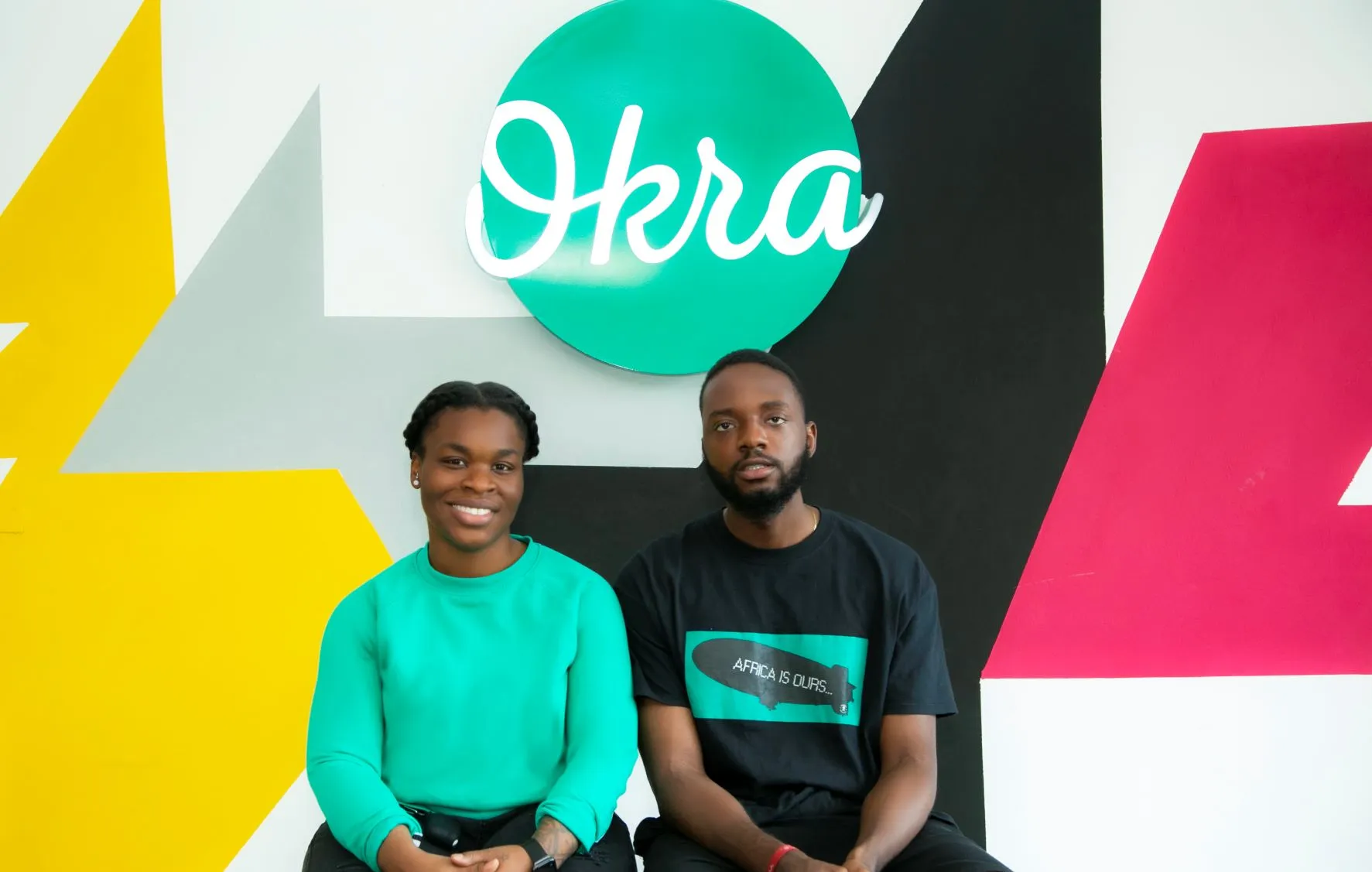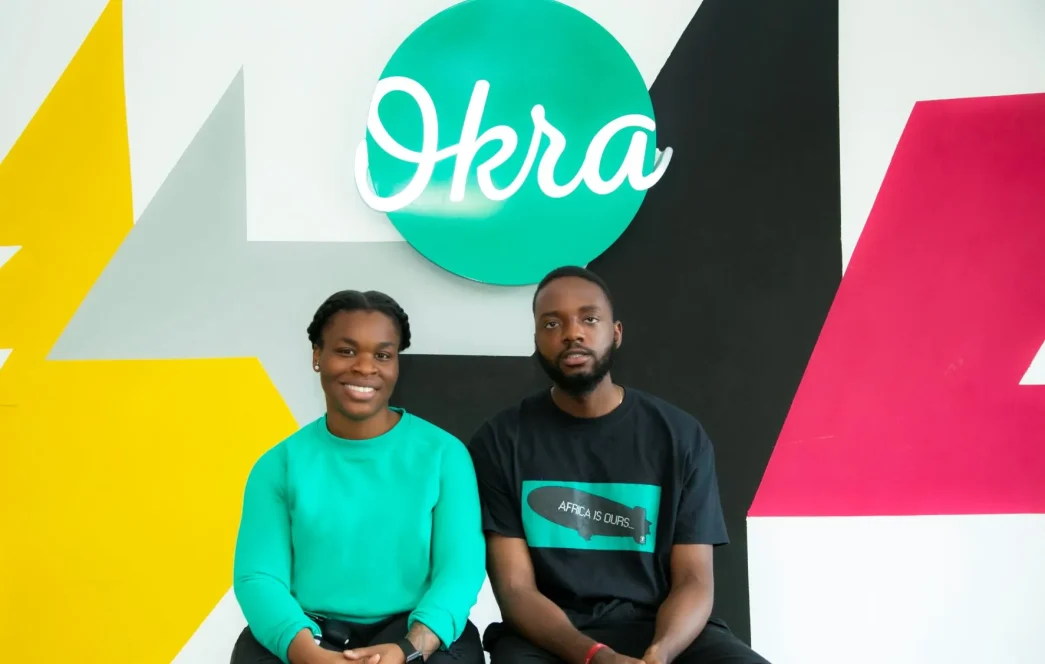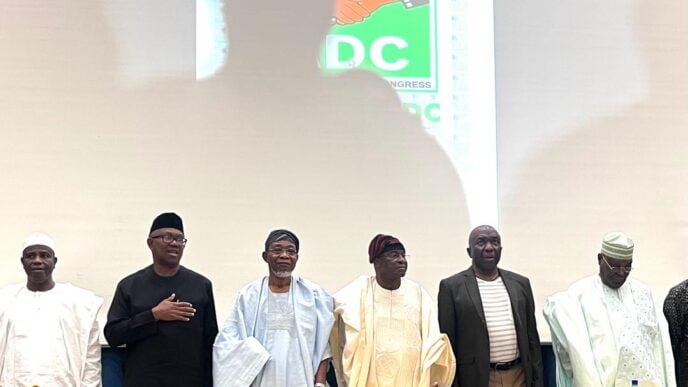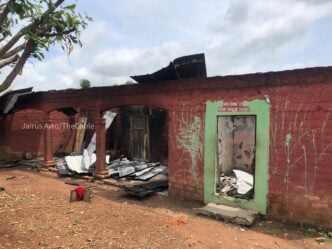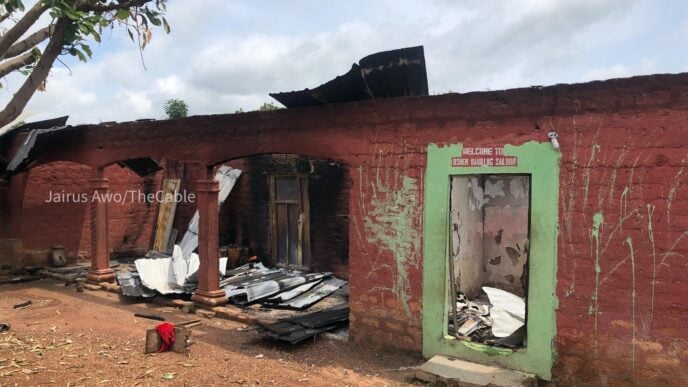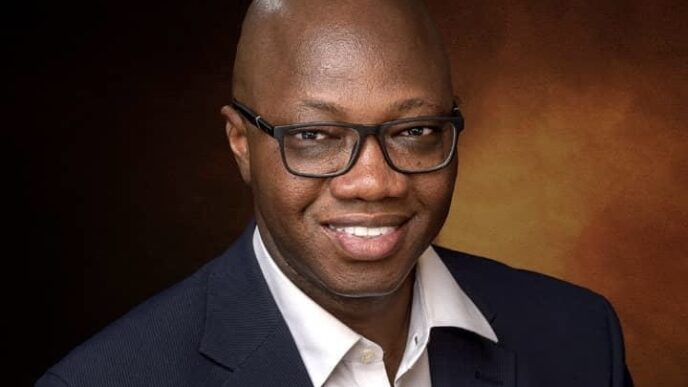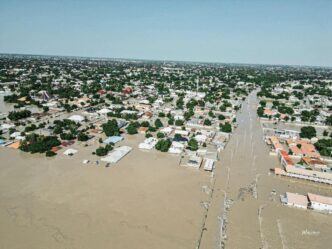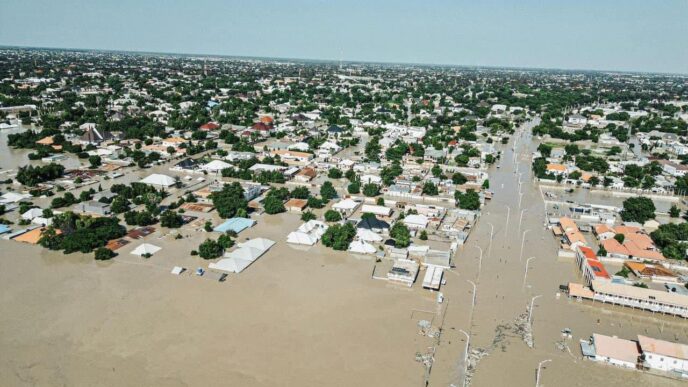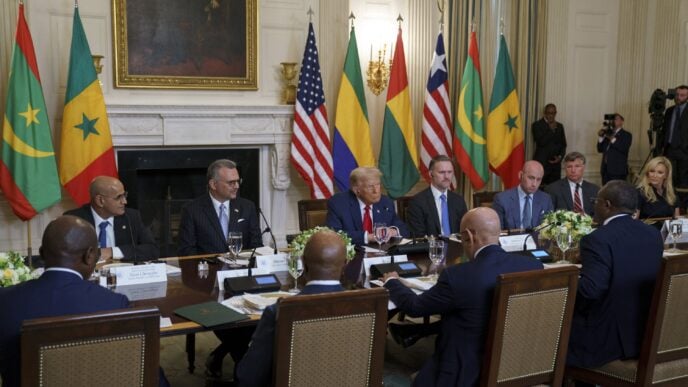BY SHUAIB AGAKA
In 2020, Nigerian startup Okra burst onto Africa’s fintech scene with an audacious promise: to become the “super connector” for open banking on the continent.
Co-founded by software engineer Fara Ashiru Jituboh and entrepreneur David Peterside, Okra positioned itself as the missing link between banks, fintechs, and millions of consumers, offering developers API tools to securely access real-time financial data. The pitch struck a chord with investors hungry for the next big fintech infrastructure play in Africa. By mid-2021, Okra had raised an eye-catching $16 million, backed by heavyweight names like TLcom Capital, Susa Ventures, and Accenture Ventures—all betting that African fintech could leapfrog outdated banking systems with smart data pipes.
But just five years later, that promise ended in a quiet, sobering turn. In mid-2025, Okra’s API service disappeared without warning. There was no pivot announcement, no acquisition, and no farewell statement—just a silent fade that left clients, investors, and industry watchers asking: How does a startup with millions in backing and a globally relevant idea run out of steam so soon? The answer, many say, lies in a perfect storm of regulatory delays, market realities, and a brutal execution gap that turned the dream of open banking into an object lesson for Nigeria’s young fintech ecosystem.
Advertisement
Meanwhile, Jituboh, once hailed by Forbes as the “queen of APIs,” has moved on, now leading engineering at a UK startup called Kerne, as the dust settles on what could be one of Nigeria’s most instructive startup flameouts to date.
At its peak, Okra’s vision was bold yet deceptively straightforward: build the digital plumbing for Africa’s emerging financial ecosystem. Inspired by the open banking revolution that transformed consumer finance in Europe and parts of Asia, Okra set out to give developers, startups, and legacy banks secure, real-time access to customer banking data through robust APIs—the same kind of backbone that powers neobanks, budgeting apps, and credit tools worldwide. For banks and fintechs, this meant faster onboarding, automated identity verification, and a clearer picture of how people spend and save, opening doors for new credit products and inclusive financial services.
Investors were captivated. In April 2020, Okra announced its first $1 million pre-seed round led by TLcom Capital, an Africa-focused VC known for betting on local high-growth startups. Just months later, the company secured another $3.5 million from global backers like Susa Ventures and Accenture Ventures. By 2021, Okra had pulled in a total of around $16 million, an eye-popping sum for an early-stage African startup building API infrastructure. The goal was simple: scale fast, hire top engineers, onboard big banks, and position Okra as the default gateway for open banking in West Africa.
Advertisement
International investors called it the “Plaid for Africa,” convinced that demand for seamless, secure data connections would explode as digital payments and lending took off.
Yet beneath the headlines, the story was already getting complicated. Okra’s model hinged on a key piece of the puzzle: clear, enforceable regulations that would make banks share customer data in a secure, standardized way. But Nigeria’s open banking framework remained stuck in draft form for years, only gaining real traction in 2023 when the Central Bank of Nigeria finally issued formal guidelines. In the meantime, banks, many of them large, slow-moving, and protective of their data, were hesitant to open up to third parties without a legal push. Okra found itself in a Catch-22: it needed banks’ cooperation to prove its model worked at scale, but banks had little incentive to embrace the idea fully.
On the other side, the fintech startups that Okra hoped would be its biggest clients were themselves navigating choppy waters. Many were still finding product-market fit, struggling to acquire paying customers, or tangled in other layers of Nigeria’s evolving regulatory landscape. For Okra, this meant its beautiful infrastructure—its APIs, documentation, and developer tools—often sat unused or underused. With limited transaction volume, revenue streams lagged behind sky-high investor expectations and an ever-growing burn rate.
That’s where execution came under the spotlight. The founder, Jituboh, was praised early on for her vision and her ability to raise big money in a sector hungry for breakout success stories. But insiders suggest that the pressure to grow quickly, hire aggressively, and stay ahead of rivals like Mono and Stitch created a spending pace that the market simply couldn’t keep up with. The sales cycles for onboarding big banks were infamously long. Convincing scrappy fintechs to pay top dollar for API calls proved just as tough in an ecosystem where every dollar counts. Meanwhile, the leadership team was spread thin, juggling product development, regulatory lobbying, client education, and investor relations all at once.
Advertisement
By 2025, Okra’s runway had simply run out. When the shutdown came, it wasn’t marked by any dramatic pivot or acquisition, just the quiet break of API calls that alerted clients to the fact that something was seriously wrong. Some partners and customers found out only when their platforms stopped working. In Nigeria’s close-knit fintech scene, the silence spoke volumes: no press release, no plan for data handover, no clear roadmap for how sensitive customer information would be secured or transferred.
That question—what happens to the vast troves of bank data once processed—is now the elephant in the room. In more mature open banking markets, regulators enforce strict data governance and exit plans when a provider fails. But in Nigeria, the newly minted framework has yet to be truly tested. For small lending apps and other startups that relied on Okra’s pipes, the uncertainty exposes them to compliance headaches and reputational risk if that data is ever misused or mishandled. For end users, it raises a bigger trust issue: if Africa’s future financial infrastructure depends on third-party pipes like Okra’s, who ensures those pipes don’t break, or worse, leak?
Agencies like Nigeria’s National Information Technology Development Agency (NITDA)—which is mandated to develop IT policies, drive local content, and enforce data protection through frameworks like the Nigeria Data Protection Regulation (NDPR)—have made significant efforts to build trust in the digital ecosystem. But Okra’s quiet collapse highlights how these efforts need to be strengthened with practical, enforceable measures that bridge the gap between startups, banks, and end users. Without tighter collaboration, the promise of secure open banking will remain fragile, and the risks to consumer data will keep growing.
Okra’s story is far more than a single startup’s failure; it’s a warning shot for Africa’s fintech boom. Building secure, robust infrastructure for millions of people requires more than capital and code. Timing, policy alignment, and market maturity matter just as much as vision. It’s a reminder to founders that ambitious ideas still need to match the realities of local ecosystems that move at their own pace. It’s a wake-up call for VCs that big-ticket funding rounds mean little if the runway burns faster than the revenue comes in, especially when regulation is playing catch-up.
Advertisement
Yet there’s still room for optimism. Open banking isn’t dead in Africa; in fact, Nigeria’s formal framework may finally lay the groundwork for the next generation of players to get it right. Competitors like Mono and Stitch are still in the game, quietly building the pipes Okra could not finish. The big question now is whether they, regulators, and investors can learn from Okra’s stumbles to create models that are sustainable, resilient, and truly trusted.
For Jituboh and Peterside, the end of Okra doesn’t erase what they tried to build. In a sector that demands pioneers willing to tackle the hardest problems, they were among the first to dream that Africa’s financial data could flow freely and securely. But dreams alone don’t build durable bridges. Trust, transparency, strong governance, and realistic execution do. If Okra’s rise and fall spark a deeper conversation about how to build those bridges properly, then its story may not be just a cautionary tale, but the spark that ensures Africa’s open banking future has a sturdier foundation next time.
Advertisement
Shuaib S. Agaka, a tech journalist, writes from Kano state
Advertisement
Views expressed by contributors are strictly personal and not of TheCable.
